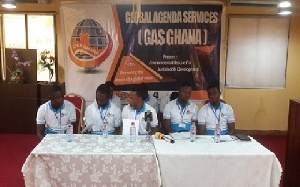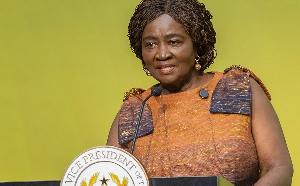A research conducted by a Kumasi-based Non-Governmental Organization (NGO), Global Agenda Service (GAS Ghana),has revealed that Ghana risks becoming a desert in the next 39 years because of ‘galamsey’ activities in the country.
According to the NGO, every 34 minutes a tree is cut without being replaced because of illegal mining activities in the country.
The research indicated that for every nine trees cut down, only one is replaced or planted in the country.
GAS explained that the problems with mining in the country are not financial, technical but attitudinal and it is now offering less production in agricultural sector.
“Ghana, in the next 10 years, cannot export its agricultural produce abroad because most farms would have been sold to investors to do ‘galamsey’ in the country and this is very alarming,” the NGO said.
It, therefore, urged the government to declare a state of emergency to deal with the alarming situation of illegal mining.
Speaking at a press conference in Accra to lay the findings bare and to proffer solutions to the end of ‘galamsey’, Ing Evans Arthur, the Convener of GAS, said the issue of small -cale mining has been a topical issue in the country for some time now that needs a more technical approach in finding solutions than the present social approach.
He argued that Ghana is more of a mineral mining country than agricultural country as people have been made to believe over the years.
Because areas like the Northern belt are replete with the white minerals like platinum and some group of metals meaning that the whole of the country is sitting on mineral resources.
According to him, the middle belt is also made up of yellow minerals like gold while the southern belt, which has availability of black minerals like limestone, bauxite, among others, adding that this makes Ghana a mining country rather agricultural country.
He posited that there is no particular difference between small-scale mining and ‘galamsey’ adding that the only difference is the license acquired by the small-scale operators.
In spite of all these, he said mining can be made the backbone of economic development of the country with the right practice.
For a sustainable system of mining, he said, “what we need to be thinking about is an alternative system for mining in the country”.
Briefing the media on the Sustainable Trig Mining (STM) being offered as an alternative to illegal mining in the country, he said it is a new system of mining prepared or designed to promote sustainable economic development through sustainable environmental development observation.
General News of Tuesday, 30 May 2017
Source: thefinderonline













